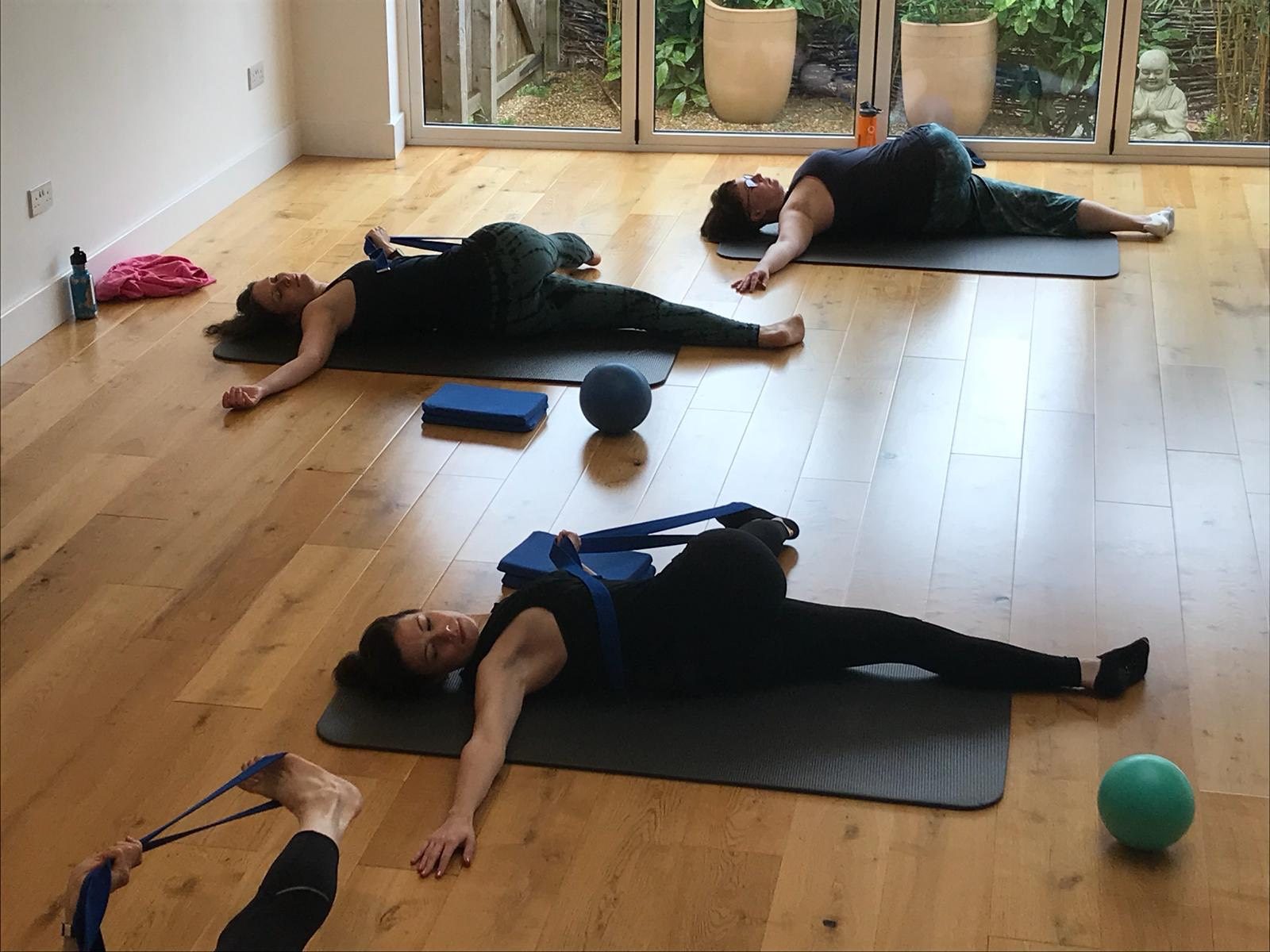There are vast amounts of literature available that discuss the benefits of exercise on everything from your physical, emotional, spiritual and intellectual health. At The Studio Durham House we offer a range of weekly group classes; including yoga, flexicore, pilates and barre, as well as regular workshops and courses that can support one or more pillars of
your overall holistic health.
In today’s blog we look at the key benefits of taking part in regular group exercise on your health and well-being.
Group training for mental health.
As far back as the early 80’s scholars were looking at the benefit of physical activity on mental health. Researchers Folkins & Sime found that physical fitness training leads to improved mood, self-concept, and work behaviour; whilst the evidence was less clear as to its effects on cognitive functioning, although it does appear to bolster cognitive performance
during and after physical stress. Further research in the mid 80’s by Barre-Taylor, Sallis & Needle suggested that physical activity and exercise probably alleviates some symptoms associated with mild to moderate depression.
Nowadays many organisations promote the benefits of regular exercise on our sense of self, ability to function well individually or in relationships, deal with the ups and downs of life, cope with challenges and making the most of opportunities. Regular exercise has been suggested to give us control and freedom over our lives and give us a sense of purpose and value, which is turn connects us to our community and surroundings.
Exercise and physical health.
In addition to the benefits of exercise on mental health, exercise and physical health are extremely well documented. Exercise, play and sport all constitute physical activity and all have a part to play in your physical health. This can include the management of body composition, the ability to move correctly, and being in control of your body. Furthermore, the exercise has been found to combat health conditions and diseases.
Researchers suggest that no matter what your current weight is, being active boosts high-density lipoprotein (HDL) cholesterol, the “good” cholesterol, and it decreases unhealthy triglycerides. This one-two punch keeps your blood flowing smoothly, which decreases your risk of cardiovascular diseases. Regular exercise helps prevent or manage many health problems and concerns, including, strokes, high blood pressure, type 2 diabetes and arthritis.
Exercise and intellectual health
Firstly, when you are describing intellectual health you are referring to having the ability to use the resources available to expand one’s knowledge, improve one’s skills, and create potential for sharing with others.
Countless studies have shown that regular physical activity and fine-tuned motor skills benefit cognitive function beginning in infancy and continuing through every stage of our lives.
Neuroscientists have known for decades that brain-derived neurotrophic factor (BDNF) is released during aerobic exercise and stimulates neurogenesis (the growth of new neurons).
This provides you with a much needed boost for the brain regardless of your age or when you start.
Exercise and spiritual health
Finally, despite less scientific research that is available, many individuals and organisations suggest a positive correlation between physical activity and spiritual health. Basic improvements like promoting mindfulness and improving your relationships, it has also been found to make you more sociable and heighten your intuition. These can be especially prevalent in a group training environment like the one available at the Studio Durham House.
In summary
So, to summarise, any form of activity, be it running, yoga, weight training has been found through research to provide a positive effect on all aspects of your overall holistic health and, no matter who you are, it is not too late to start.




